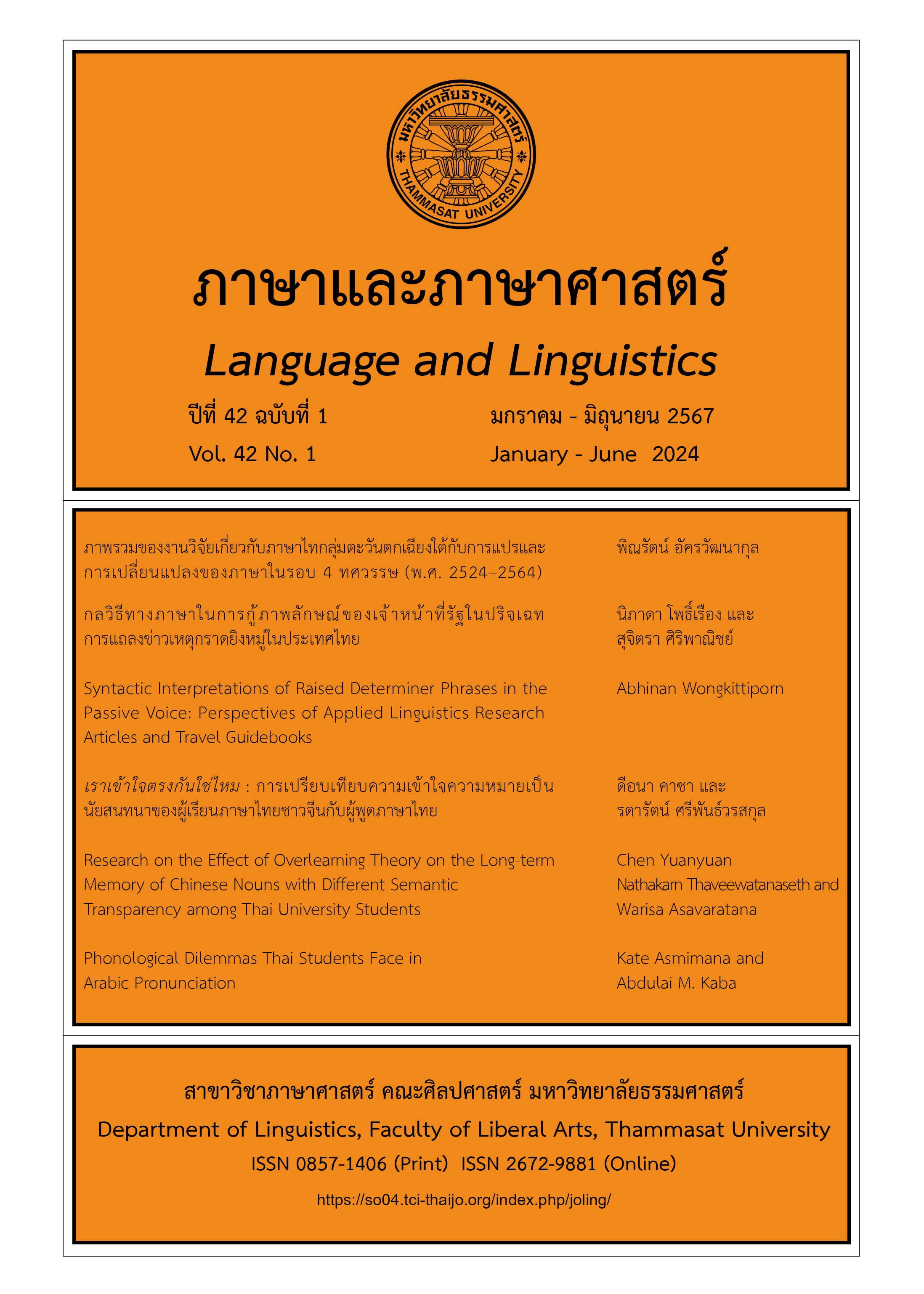Research on the Effect of Overlearning Theory on the Long-term Memory of Chinese Nouns with Different Semantic Transparency among Thai University Students
Main Article Content
Abstract
Vocabulary teaching is an essential component of teaching Chinese in Thailand. For Thai university students, teachers should pay attention to their long-term vocabulary retention after class and their learning in class. The effect of long-term vocabulary memorization has a significant effect on the students who need to take the new HSK Test. Based on the ethical review of research ethics involving humans by the Kasetsart University Research Ethics Committee, this paper investigates the effect of “overlearning theory” on the long-term memory of Chinese nouns with high semantic transparency and low semantic transparency by Using qualitative, quantitative, and experimental methods, and found that the “over-learning theory” did have a positive effect on Thai college students’ long-term memory of Chinese noun words within 3-9 weeks. Over-learning did improve students’ long-term memory of Chinese noun words to a certain extent, but it should be noted that there is a difference between words with high and low semantic transparency. The effect of “overlearning theory” on the long-term memory of nouns with high semantic transparency is slightly greater than that of words with low semantic transparency.
Article Details

This work is licensed under a Creative Commons Attribution-NonCommercial-NoDerivatives 4.0 International License.
บทความทุกบทความเป็นลิขสิทธิ์ของภาษาและภาษาศาสตร์
References
Chen Hongxiu 陈鸿秀. (2004). 论 “过度学习” 的异化和调控.教育评论, 10, 43–44.
Cheng Shaotang & Sun Fang 程少堂、孙芳. (1989).论 “过度学习” 的基点度、价值及原则.教育评论, 6, 24-28.
Driskell, J. E., Willis, R. P., & Copper, C. (1992). Effect of overlearning on retention. Journal of Applied Psychology, 77, 615-622.
Feng Zhiping & Xu Xiaoyan 冯志平、徐晓俨. (1996). 论 “过度学习”. 医学教育, 6, 26–29.
Gao Qi 高琪. (2018). 过度学习对高中生英语词汇长时记忆的影响研究.硕士论文,曲阜师范大学.
He Qingqiang 何清强. (2008). 第二语言词汇教学的 “认知—动机” 模型. 语言教学与研究, 3, 70-76.
Krejcie, R. V., & Morgan, D. W. (1970). Determining sample size for research activities. Educational and psychological measurement, 30, 607-610.
Li Yanping 李艳平. (2012). 过度学习对长时记忆的影响研究.硕士论文,西南财经大学.
Liu Juanjuan & Li Guiqiong 刘娟娟、李桂琼. (2016). 基于 “过度学习原理” 的留学生汉语记忆词汇探析.红河学院学报, 14,03, 116-118.
Peng Sixiang & Qin Rong 彭思祥、秦蓉. (2012).词汇学习策略在高中生英语教学中的有效应用.内蒙古师范大学学报, 25(08), 129–131.
Xu Qian 徐倩. (2017). “联想记忆法” 对大学生汉语词汇记忆效 果的实验研究——以塔吉克斯坦国立语言学院和民族大学为例.硕士论文,新疆大学.


